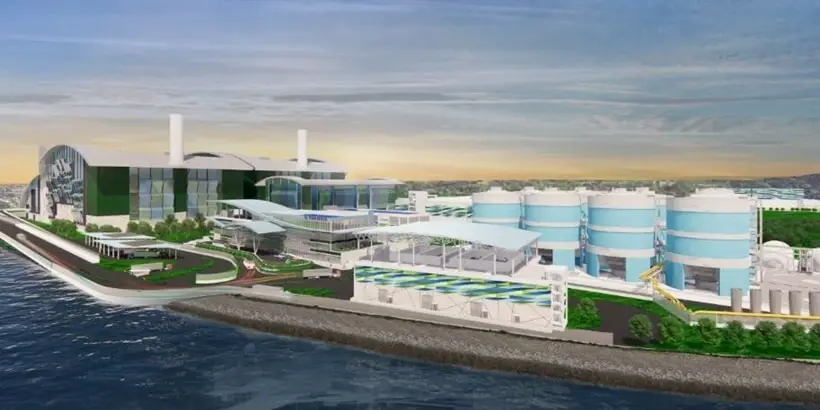Singapore has begun construction of the first phase of its first Integrated Water And Solid Waste Treatment Facility, the Tuas Nexus, according to a statement release by National Environment Agency (NEA) and PUB. The Tuas Nexus is expected to be complete all its phases by the beginning of 2025,and is a co-location of two mega facilities – the Tuas Water Reclamation Plant (Tuas WRP) and Integrated Waste Management Facility (IWMF) – that will “help forge a more sustainable Singapore by optimizing land use, and maximizing energy and resource recovery”. The Integrated Water And Solid Waste Treatment Facility in Singapore is expected to be energy self-sufficient which will result in carbon savings of more than 200,000 tonnes of carbon dioxide annually, equivalent to taking 42,500 cars off Singapore’s roads. In addition, integrating the two facilities will result in land savings of up to 2.6ha, approximately the size of four football fields, as compared to building the two as standalone facilities, the release added.
Also Read: Singapore begins construction of the world’s largest inland floating PV system.
“By employing the latest technologies, Tuas Nexus will harness the synergies of the water-energy-waste nexus from used water and solid waste. “The by-product of one facility becomes a resource for the other facility,” PUB and NEA explained. For example, IWMF’s Food Waste Treatment Facility will convert source segregated food waste into food waste slurry suitable for co-digestion with used water sludge at Tuas WRP.
How It Works:
The co-digestion of food waste and used water sludge will increase biogas production by 40 percent at Tuas WRP, compared to biogas yield from treatment of used water sludge alone. The biogas produced will then be combusted at IWMF and the combustion heat energy recovered to improve the overall plant thermal efficiency and boost electricity generation, said the agencies. The electricity generated by IWMF will be used to sustain the operations of Tuas Nexus with excess to be exported to the grid. This excess electricity exported to the grid will be able to continually power up to 300,000 four-room HDB apartments.
